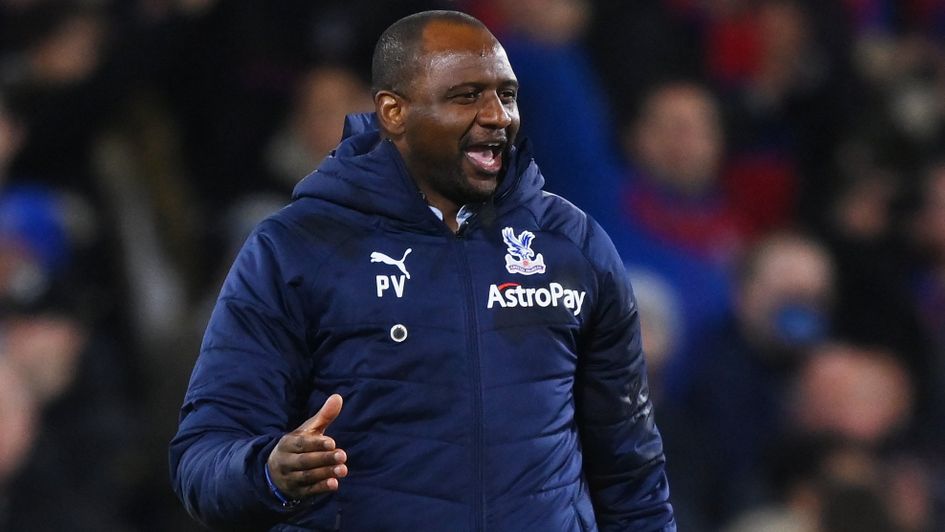Thomas Tuchel will take no comfort whatsoever from the fact his tactics were perfect in the Champions League quarter-final at the Bernabeu.
Everything from the team selection to the surprise diamond 4-4-2 to the deployment of Ruben Loftus-Cheek left Real Madrid struggling for air, needing a moment of magic from Luka Modric to get back into the tie.
Chelsea have one of the best coaches in Europe and that was proved once again on Tuesday night, yet it may count for little this summer if Tuchel finishes the 2021/22 season third in the Premier League and trophy-less.
The club’s new owners may or may not be smart football people. Most tend to want tangible evidence of success and progress; are unable to recognise a tactical masterclass if it does not lead to the right result.
Which is to say that Sunday’s FA Cup semi-final against Crystal Palace at Wembley is a hugely important game for a manager and squad who have no idea what the future holds.
Palace have less to lose, and yet pressure comes from the rarity of the moment.
In their last FA Cup final appearance in 2016 they were agonisingly beaten in extra-time by Manchester United despite taking the lead. Many assumed this would be their only chance for a generation.
Though still under-dogs, Patrick Vieira is overseeing something of a revolution at Selhurst Park – and lifting the FA Cup would be a fitting end to a brilliant debut campaign.
Vieira’s side have a surprisingly good chance of victory. Their last meeting back in February at Selhurst Park ended 1-0, won by an 89th minute Kai Havertz goal after a frustrating game for Chelsea.
A tired Chelsea could spell opportunity for Palace
The biggest difference between that match and the FA Cup semi-final is this time, Chelsea are emotionally and physically exhausted from their 120 minutes in Madrid.
Palace will play as they always do against the Premier League’s ‘Big Six’, deploying the tactical strategy that has served Vieira so well in transitioning the team from Roy Hodgson’s ultra-defensive football to something more progressive.
Crystal Palace will sit in diligently compressed lines in a 4-3-3 formation, holding the centre ground and happily conceding possession and territory in the opposition half – just as they did so successfully in the recent 0-0 draw with Manchester City.
From this position, the aim will be to snap aggressively into challenges in a packed central midfield where Cheikhou Kouyate and James McArthur will lead in Conor Gallagher’s absence.
Only Leeds United apply more pressures in the middle third of the pitch than Crystal Palace (2213) this season, reflecting the extent to which they flick dramatically into action when opponents enter their midfield area.
This is a problem for Chelsea because, more than likely, Tuchel will switch away from the diamond 4-4-2 – designed specifically to cope with Real’s first-leg dominance through Luka Modric and Toni Kroos – and back to his favoured 3-4-3.
N’Golo Kante and Matteo Kovacic, feeling Tuesday night in their legs, may struggle to assert themselves here, while Chelsea’s inside forwards should be crowded out by McArthur, Kouyate, and Jeffrey Schlupp.
Schlupp might just be Palace’s secret weapon. He is enjoying a renaissance in the middle of the park under Vieira, wriggling away from challenges and dribbling through the lines to help initiate counter-attacks. In a congested midfield, and with only two Chelsea midfielders on the pitch, Schlupp might be able to make use of the turnovers.
Right-backs the weak-links
In this he will be assisted by Wilfried Zaha and Jean-Philippe Mateta, who will all be leaning out to the left flank when counter-attacking opportunities present themselves.
There will be space behind the advancing Reece James, and we know from Brentford’s 4-1 win at Stamford Bridge earlier this month that Chelsea are not entirely secure against breaks. The roaming Christian Eriksen caused damage, with Bryan Mbeumo and Ivan Toney dovetailing to great effect.
Crystal Palace will take encouragement from that game but Chelsea remain clear favourites, not least because they have been very strong at set-pieces this season while Vieira’s side have conceded the third-most in the division (13), behind Leicester City and Leeds.
Should Chelsea manage to put consistent pressure on the Palace goal then being bombarded with corners may eventually tell, as it did against Real Madrid in midweek.
The second biggest problem for Palace is their weak link at right-back Nathaniel Clyne, who will come under severe pressure from Chelsea.
Tuchel is very good at finding flaws and exposing them with a specific tactical plan, which means his side are likely to double up on Clyne. Look out for Mason Mount trying to run things in that channel.
Whatever happens it will be a tight game, and one from which Crystal Palace emerge with a lot of credit. They do not roll over, twice taking points from Man City this season and beating Arsenal 3-0 just two weeks ago.
But with success comes expectation, and it is indicative of the outstanding job Vieira is doing that fans will be disappointed to lose out on a second FA Cup final in six years.
It is certainly within their grasp. Chelsea arrive bruised and weary. Slow the game down, frustrate Chelsea, hit them hard, and extend their pain: that is Crystal Palace’s pathway to seeing Tuchel knocked out of a second competition in four days.
